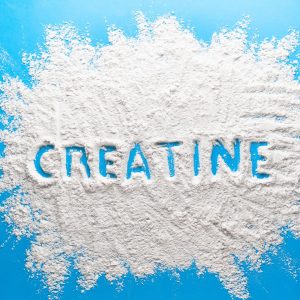 Creatine is still often viewed as a supplement reserved for bodybuilders and athletes. Yet beyond the gym floor, this well-researched compound offers benefits that extend to energy metabolism, brain function and healthy ageing. Creatine monohydrate, in particular, has a strong safety profile and clinical track record, making it a valuable option for both men and women across a range of life stages—not just the athletic elite.
Creatine is still often viewed as a supplement reserved for bodybuilders and athletes. Yet beyond the gym floor, this well-researched compound offers benefits that extend to energy metabolism, brain function and healthy ageing. Creatine monohydrate, in particular, has a strong safety profile and clinical track record, making it a valuable option for both men and women across a range of life stages—not just the athletic elite.
What Is Creatine?
Creatine is a naturally occurring compound derived from amino acids, synthesised in the liver, kidneys and pancreas and stored predominantly in skeletal muscle. Its primary function is to support the regeneration of adenosine triphosphate (ATP)—our cells’ main energy currency—especially during times of high demand.
We also obtain creatine through diet, primarily from red meat and seafood. While this may be adequate for omnivores with moderate needs, individuals with higher metabolic demands—or those following plant-based diets, which contain virtually no creatine—may benefit from supplementation to optimise tissue stores and support performance, cognition and recovery.
Why Creatine Monohydrate?
Although there are many forms of creatine on the market, creatine monohydrate remains the most rigorously studied and clinically validated. It’s cost-effective, stable and consistently shown to be bioavailable and safe across a wide range of populations. With decades of research behind it, creatine monohydrate continues to be the most reliable and effective option for supporting strength, cognitive function and overall metabolic health.
More Than Muscle: The Expanding Role of Creatine in Health
- Supports Brain Energy and Cognitive Performance
The brain is a metabolically demanding tissue with high energy requirements, particularly during periods of stress or cognitive load. Creatine plays a central role in cellular energy metabolism and may help support cognitive performance under specific conditions. Research suggests that creatine supplementation can assist with working memory and mental fatigue, particularly during sleep deprivation or prolonged mental effort. There is also growing interest in its potential to support cognitive function in older adults, though more studies are needed to fully understand its role in age-related cognitive changes.
- Enhances Recovery and Muscle Integrity
Creatine helps buffer cellular stress and supports the repair of muscle tissue post-exercise or injury. For ageing individuals, it can support lean mass preservation, aid rehabilitation and reduce sarcopenia risk, especially when combined with resistance training.
- Supports Bone Health and Metabolic Function
Creatine has been shown to support bone health indirectly by enhancing muscle strength and mass, which increases mechanical loading on the skeleton—a key stimulus for maintaining bone mineral density. Research also indicates that creatine supplementation, particularly alongside resistance training, may help improve glucose tolerance and insulin sensitivity in certain populations, adding further value to its role in metabolic health.
- Supports Women’s Health During Periods of Rapid Hormonal Change
Emerging research suggests that creatine may be particularly supportive during periods of rapid hormonal change in women, such as perimenopause, menopause and the menstrual cycle. These transitions can affect energy levels, cognition and mood—areas where creatine plays a central role through its support of cellular energy metabolism. While findings are still developing, early evidence indicates that creatine may help buffer some of the physiological effects of hormonal fluctuation, though more targeted research is needed.
- Creatine for Vegetarians, Vegans and Active Ageing
Plant-based diets are typically low in creatine, and studies consistently show lower muscle creatine stores among vegetarians and vegans. Supplementing with creatine monohydrate can help bridge this gap and support energy metabolism and muscle function. Research also suggests that creatine may benefit adults over 50 by supporting strength, cognitive function and physical performance, particularly when used alongside resistance training.
How to Use Creatine Monohydrate
Creatine monohydrate is tasteless, odourless and dissolves easily in water, smoothies or other liquids. A daily dose of 3 to 5 grams (approx. 1 tsp) is typically sufficient to support muscle energy metabolism and performance. Consistency is key—regular daily intake appears more important for results than the timing of each dose. Creatine is generally well tolerated at recommended doses, though some individuals may experience mild gastrointestinal discomfort.
The Bottom Line
Creatine monohydrate among the most thoroughly researched supplements in modern nutrition, with a strong safety profile and benefits that reach well beyond the gym. For those looking to support physical strength, mental clarity or healthy ageing, it offers a practical and evidence-backed option that integrates easily into daily life.
As with any supplement, it’s worth checking whether it’s the right fit for your individual health picture—particularly if you have existing kidney conditions or are taking medications. Feel free to come in and chat with one of our qualified team members about whether creatine could be a useful part of your routine. For a more personalised approach, you can also book a consultation at www.viveclinic.com.au.
Article written by
Peter Christinson
BHSc (Nutritional and Dietetic Medicine)
Retail and Clinic Manager
